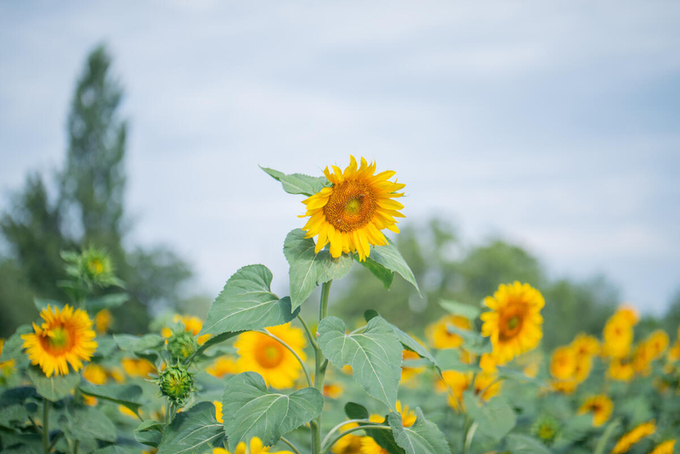May 23, 2025 | 13:49 GMT +7
May 23, 2025 | 13:49 GMT +7
Hotline: 0913.378.918
May 23, 2025 | 13:49 GMT +7
Hotline: 0913.378.918

Sunflowers in Azerbaijan.
The benchmark for world food commodity prices was broadly unchanged in July for the second month in a row, as increases in international quotations of vegetable oils, meat products and sugar offset an ongoing decrease in those for cereals, the Food and Agriculture Organization of the United Nations reported Friday.
The FAO Food Price Index, which tracks monthly changes in the international prices of a set of globally-traded food commodities, averaged 120.8 points in July, marginally below its revised 121.0 figure for June. The index is now 3.1 percent lower than its corresponding value one year earlier.
The FAO Cereal Price Index declined by 3.8 percent from June as the global export prices of all major cereals decreased for the second consecutive month. Wheat quotations dipped on increasing seasonal availability from ongoing winter harvests in the northern hemisphere and generally favorable conditions in Canada and the United State of America supporting expectations for large spring wheat harvests later in the year.
Maize export prices also declined as harvests in Argentina and Brazil progressed ahead of last year’s pace and crop conditions in the United States remained robust. The FAO All-Rice Price Index declined by 2.4 percent from June amid generally quiet trading activities for both Indica and Japonica varieties.
The FAO Vegetable Oil Price Index, by contrast, rose 2.4 percent from June to reach a one-and-a-half-year high. Global quotations for palm, soy, sunflower and rapeseed oils all rose, lifted by robust demand for soy oil from the biofuel sector and deteriorating crop prospects for sunflower and rapeseed oils in several major producing countries.
The FAO Meat Price Index increased by 1.2 percent in July amid robust import demand for ovine, bovine and poultry meat, even as pig meat prices declined marginally due to an oversupply situation in Western Europe.
The FAO Sugar Price Index increased by 0.7 percent from June as lower-than-expected production in Brazil outweighed the impact of improved monsoon rainfall in India and conducive weather conditions in Thailand.
The FAO Dairy Price Index was unchanged in July, as decreases in the quotations for milk powders offset increases in those for butter and cheese.
(FAO)

(VAN) Alt Carbon has raised $12 million in a seed round as it plans to scale its carbon dioxide removal work in the South Asian nation.

(VAN) Attempts to bring down the price of the Japanese staple have had little effect amid a cost-of-living crisis.

(VAN) Fourth most important food crop in peril as Latin America and Caribbean suffer from slow-onset climate disaster.

(VAN) Shifting market dynamics and the noise around new legislation has propelled Trouw Nutrition’s research around early life nutrition in poultry. Today, it continues to be a key area of research.

(VAN) India is concerned about its food security and the livelihoods of its farmers if more US food imports are allowed.

(VAN) FAO's Director-General emphasises the need to work together to transform agrifood systems.

(VAN) Europe is facing its worst outbreak of foot-and-mouth since the start of the century.